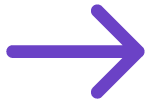I have what some might consider controversial thoughts about how we balance our work and our lives. And I can already feel my friends and coworkers staring me down, but hear me out.
At first glance, I may not be the poster child for what has traditionally passed for work-life balance: a hard and fast line between work-time and me-time. In fact, that line doesn’t exist for me. Here’s an example: My girlfriends and I have developed a little tradition of regular beach get-togethers. We’re there to catch up with each other, reminisce about when we were younger, and soak up some sun. So if they catch me fielding work calls during that time, they’re understandably annoyed. After all, I’m missing the whole point of going in the first place: to take a break from the daily grind.
Right?
Here’s the thing: I believe a good work-life balance looks different for each of us. What you consider healthy might not work for me, and vice-versa. And one major impact of the pandemic has been to open a lot of eyes to this perspective.
When I was working at the beach, I was still at the beach. That’s the beauty of work-life fluidity instead of a harsh separation between the two. Even if I was on work calls, I had the waves crashing as background noise and the stunning sunset as my view. And as soon as I closed my laptop, my friends were right there with me.
Obviously the beach-with-friends metaphor isn’t applicable to all of us right now. But what we can all relate to is that drawing that traditional, hard-and-fast line between our work and our lives isn’t so easy right now. In fact, it may not be possible at all.
Our children need attention—now more than ever, with virtual schooling and less entertainment options out of the house. Our emergency home repairs still need to be done, whether or not we’re on the clock. These things have always been true, but without physical separation between work and home, our industry is waking up to the necessity of a more fluid approach to that traditional “balance.”
And while I’ve always believed in that approach for myself, what a revelation it’s been to see it in action through the work of my team members during this time. In particular, I’m thinking about three women on my team who are also mothers. One is a single parent, watching her young daughter and working at the same time. Another has a toddler, a newborn, and a husband whose work pulls him away from home for most of the week. A third spends her days watching her two children and her nights tackling her work, while the rest of us are fast asleep.
Each one of these women is operating outside of the traditional 9-5 work day, and each one of these women is absolutely crushing it. As both a leader and a new mother navigating the best way to wear those two hats, I am in awe of these women, who don’t just straddle the line between work and life. They mold it to fit their needs, so they can best take care of their families and their jobs.
These women and others in our industry have a valuable lesson to teach us—both myself as a leader, and businesses as a whole. This isn’t a call for being available 24 hours a day, answering emails at 3 a.m. Nor is it a suggestion that all companies can operate with and offer their employees this same level of flexibility. But what we have right now, thanks to the changes brought on by the COVID-19 pandemic, is an opportunity.
The massive shift to remote work has given my company—and on a smaller scale, my team—the chance to re-evaluate the way we work best, both individually and as a whole. It’s a chance we might never have had if the shelter-in-place orders hadn’t gone into effect, and we would be doing ourselves an incredible disservice not to take it.
Think about it this way: the rock star graphic designer mom on my team, working out of her children’s nursery during naps and between feedings? She wouldn’t be able to be on my team at all if we strictly enforced a 9-5 onsite workday. And I can say with certainty we’re better for having her. If we weren’t willing to re-paint a picture of how our world works and how we want to help our employees shine, we would be the ones missing out on amazing people and amazing opportunities.
It’s the same idea across the board: incredible talent might not fit into a rigid, 100% onsite work day or work week. Is it worth losing that talent to adhere to a strict schedule, if you have the luxury to be flexible?
At my company, we’re seizing this opportunity to show empathy to our employees, to listen to them, and, perhaps most importantly, to build trust and transparency across our organization. For my marketing team, that means turning our office into a collaboration lab—a place to go in and think and be creative, not a place to be tethered to a desk for eight hours. It means designated no-meeting days, so we can focus on creating without interruption. And it means continuing to find new ways to connect with each other, even if we aren’t physically together.
The pandemic is going to end. And when it does, it will be the companies that used this disruption as a catalyst to think progressively about the future that will thrive. This is the time to make the most of the change around us. Don’t let this moment pass you by without thinking about the doors we could open with a more flexible approach to our businesses and our coworkers.
Read the original article here.






